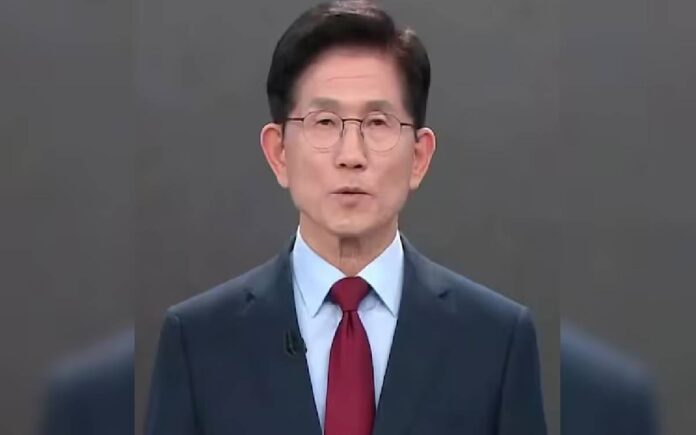Seoul – Former Labor Minister Kim Moon Soo has clinched the presidential nomination of South Korea’s main conservative party, the People Power Party (PPP), setting the stage for a high-stakes showdown with liberal front-runner Lee Jae-myung of the Democratic Party in the upcoming June 3 election.
Kim, a 73-year-old veteran politician with deep roots in both labor activism and conservative governance, emerged victorious in the PPP’s internal primary with 56.5% of the vote, defeating his closest rival, former Justice Minister Han Dong-hun, in a contest that laid bare the ideological rifts within the party.
“I’ll form a strong alliance with anyone to prevent a rule by Lee Jae-myung and his Democratic Party forces. I’ll push for that in a procedure and method that our people and party members accept, and I’ll ultimately win”, Kim declared in his victory speech, emphasizing party unity and a strong opposition to the liberal bloc.
Party in Disarray Following Yoon’s Impeachment
Kim’s nomination comes at a turbulent time for the PPP, reeling from the recent impeachment and dismissal of conservative President Yoon Suk Yeol, who was ousted by the Constitutional Court in April following his controversial decision to impose martial law on December 3. The impeachment, triggered by a rare bipartisan vote in the opposition-controlled National Assembly, has intensified internal divisions and become a defining issue of the PPP primary.
Though Kim expressed disapproval of Yoon’s martial law declaration, he stood against the impeachment, a stance that won him favor with hardline conservatives. His defiance during a heated parliamentary session on December 11, where he refused to bow in apology for Yoon’s actions — as demanded by an opposition lawmaker — further solidified his image as a party loyalist.
Conservative Unity vs. Liberal Momentum
Analysts suggest Kim’s immediate challenge will be to unify the fractured conservative base, particularly by engaging moderate factions like those led by Han Dong-hun, who aligned with the opposition during Yoon’s impeachment. Without these alliances, Kim risks splitting the conservative vote and handing an advantage to Lee Jae-myung.
Political analyst Shin Yul of Myonggi University observed, “Han could have appealed more effectively to moderate and swing voters. With Kim as the candidate, the PPP must now work harder to expand beyond its traditional base.”
A Long Political Journey: From Labor Firebrand to Conservative Stalwart
Kim Moon Soo’s political trajectory has been anything but conventional. Once a prominent labor activist in the 1970s and 1980s, Kim made a sharp turn in the 1990s by joining a conservative party, citing disillusionment with the collapse of communist regimes.
Since then, he has served three terms in the National Assembly and led Gyeonggi Province — South Korea’s most populous region — as governor for eight years. His policy platform includes anti-corruption, pension reform, financial deregulation, and expanded investments in Artificial Intelligence infrastructure. On the foreign policy front, he advocates for a stronger military alliance with the United States and the deployment of nuclear-powered submarines to deter North Korea’s nuclear threats.
Lee Jae-myung Holds Lead, But Faces Legal Hurdles
Despite being the clear front-runner, Lee Jae-myung is navigating political uncertainty following a recent Supreme Court decision ordering a retrial on charges related to election law violations. While it remains unclear if legal proceedings will derail his campaign before June 3, the ruling has offered ammunition for rivals like Kim to intensify their attacks.
The upcoming election is being closely watched both domestically and internationally as it may redefine South Korea’s political trajectory following a period of executive instability and growing public distrust in traditional party structures.



